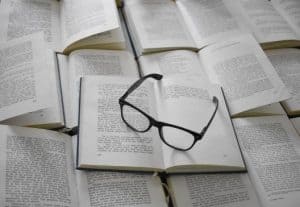Language — or rather text — played a key role in the recent high-profile departure of the president of Harvard University, Claudine Gay. The simple story is that Gay was found to have plagiarised other scholars’ work on multiple occasions both in her doctoral dissertation and in several published articles during her academic career. As the head of an institution that instructs students to “take great care to distinguish their own ideas and knowledge from information derived from sources”, once Gay’s failings on this count were uncovered, her position became untenable. But there is a more complex story that explains why this rather niche academic transgression made headline news around the world.
The story has its roots in a congressional hearing about antisemitism on US college campuses following the October 7 attacks on Israel by Hamas. In what rapidly became a viral video clip, Claudine Gay was one of three university presidents who declined to provide a simple yes/no response to a question from Republican congresswoman Elise Stefanik as to whether calling for the genocide of Jews would violate their codes of conduct on bullying and harassment. This 3-minute section of a hearing that lasted several hours prompted heated debate about antisemitism, free speech and the US First Amendment. The tone of Stefanik’s questioning made clear that she felt the responses she got were unacceptable. Others were keen to point out the hypocrisy of university policies that state “using the wrong pronouns qualifies as abuse” while arguing that “calls for genocide” required additional context to determine whether this would constitute a breach of their speech codes. Others took the opportunity to highlight the dangers of censorship and set out legal arguments in favour of free speech absolutism, essentially defending the line taken by the university presidents while not letting them off the hook on the need for consistency.
But after a flurry of interest in the boundaries of free speech, the focus shifted to another linguistic hot topic: how similar do two texts have to be before an author can reasonably be assumed to have purloined their work from someone else? In Gay’s case, amateur plagiarism experts were soon at work on various social media platforms, comparing and cross-comparing texts, but generally reaching conclusions that aligned with their own personal or political instincts. As Jonathan Bailey at Plagiarism Today wrote “the scandal quickly becomes less about the actual plagiarism, and more about judging the person who is accused of it.”
The partisan assessment of Gay’s alleged text borrowing is also reflected in the coverage of her eventual resignation. The Daily Telegraph declared her plagiarism to be evidence of “a mediocre mind trying to conjure the appearance of scholarship”. By contrast, The Guardian described the whole episode as a further example of the “rightwing’s assault on education” and suggested a “racist subtext” behind the allegations.
Politics and the culture war undoubtedly added fuel to the fire in Claudine Gay’s situation, but most instances of plagiarism (particularly in academia) play out behind the scenes. Identifying and evaluating instances of plagiarism is a slow, painstaking task. If the Claudine Gay episode has whetted your appetite for further linguistic intrigue in this area, you should check out the work of self-appointed plagiarism super-sleuth Michael Dougherty. Interestingly, he suggests that academic plagiarism is typically a recurrent habit. The cases he discovers tend not to occur in isolation. Once tempted down this path, it is apparently somewhat addictive. And when not being used as a battering ram in the culture war, Dougherty makes a compelling case that caring about plagiarism really matters if we are to develop a “trustworthy body of published scholarship”.
About the Author
Alison Tunley
Alison is a seasoned freelance translator with over 15 years of experience, specialising in translating from German to English. Originally from Wales, she has been a Londoner for some time, and she holds a PhD in Phonetics and an MPhil in Linguistics from the University of Cambridge, where she also completed her First Class BA degree in German and Spanish… Read Full Bio










